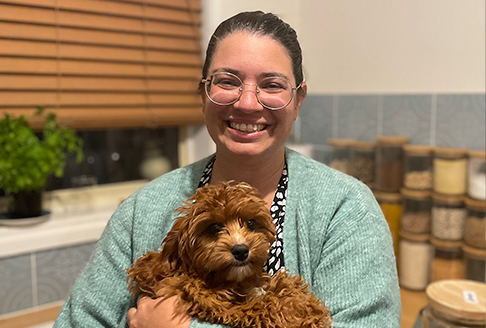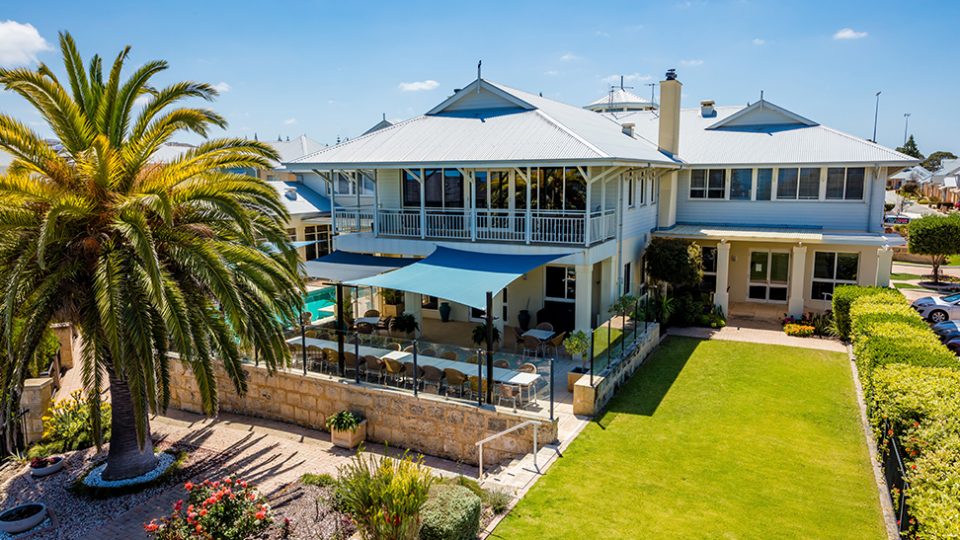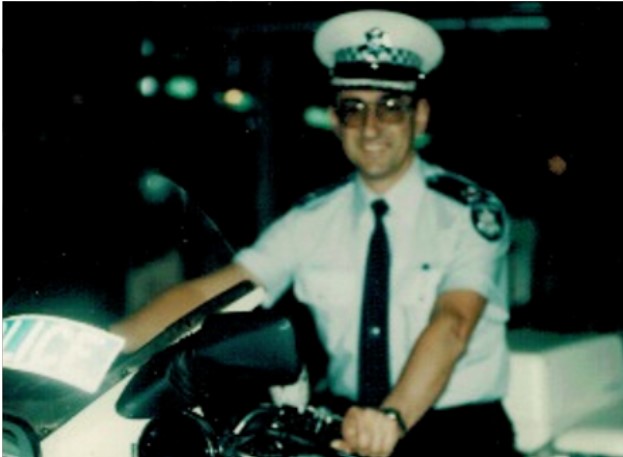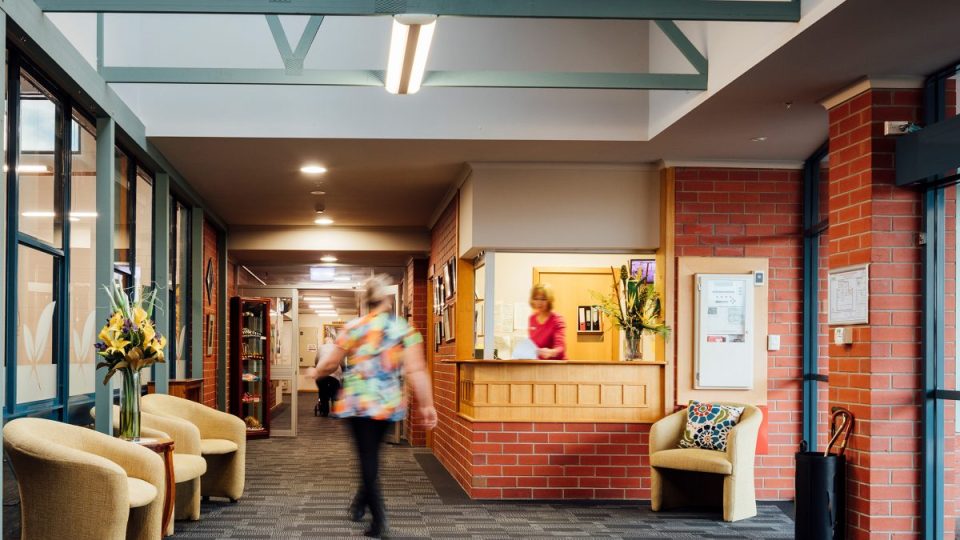Meet Hannah, one of our wonderful Foster Carers
- 13 Sep 2022

Meet Hannah!
High school teacher Hannah is a foster carer living in Melbourne’s west with her new puppy, George and kitten, Opi. Hannah has been fostering with Baptcare for about a year, including a long-term placement with a teenage girl and some respite work too. We chatted with Hannah about her fostering journey with Baptcare.
What was the foster care recruitment process like for you at the beginning?
When I made that first phone call to talk with Baptcare about the idea of fostering I was nervous and excited. I had been thinking about it for a long time so when I did ring I felt like I was finally doing it – at last! I knew the process could take around nine months as I’d done the research beforehand. But it was good to talk through the process step by step and understand fully what was involved.
What drew you to foster caring?
When I was young, I volunteered at a camp that turned out to be for kids in care. They were at the camp on respite. I met a couple of brothers who had been through 60 placements and it resonated with me. Talking with those boys planted the seed at a young age of me wanting to do foster caring.
Did you always want to do foster caring for teenagers?
I had decided I wanted to care for teenagers as I teach in a high school. I like getting to know them and as a result, I’ve had some wonderful conversations with them.
It’s really wonderful being able to affect a young person’s life positively.
Plus, with teenagers, the sleeping-in thing is a big plus for me!
What do you like about fostering?
I like to involve them in everyday life and just doing the ordinary things together. In one of my placements, we went hiking together and it was really nice and we took some lovely photos. That’s a memory she will always have. In one placement we went away for Christmas together with my family. It was her first camping trip and it was good to see her experiencing that.
What’s it like being a foster carer?
I thought working full-time and being on my own would make things harder to work around, but Baptcare have been very supportive. It helps being part of a team – that was important to me, especially in the first months. Having someone to talk things through and someone to reassure me really helped.
I’ve made some really great memories fostering like the camping trip I just mentioned. It’s memories like these that make fostering special. Giving a young person a positive memory and experience – something they can keep for the rest of their lives that’s what makes everything worthwhile.
What reactions have you had to being a foster carer?
In general family and friends have been great and very positive about fostering. Often people don’t really know what fostering involves, so they are really curious and then supportive.
What experience have you had with the birth family?
Actually, it’s been really positive having the birth family involved. It made everyone relax a little – especially the young person I’m looking after, as they are a lot more comfortable knowing that I am happy for them to have contact with their birth family. In some cases, the extended family have been a real help.
What did you think of the training you were given by Baptcare?
I think the training would be good for all teachers to do, especially the module on trauma and how the brain works.
What was the process like for you, profiled as ‘a single young female’?
It made me happy to dispel that myth that you need to be a couple to do foster caring. It’s good to have a lot of different perspectives, cultures and genders involved in fostering. It helps give the kids the ability to see things from another viewpoint. It helps open up the world for them.
Is foster caring what you expected?
Probably when I was younger I had more of a fairy tale image in my head. But as I’ve got older and done more research, foster caring is actually what I was expecting. I have a lot of friends who have been foster carers, so I kind of had an idea of what it was like. I didn’t have many illusions. I went in with my eyes open. Researching fostering helped a lot too.
People think fostering would be too hard because you will get attached to your foster children. But it’s fine. You just do the best you can.
One thing I didn’t realise is that sometimes you can stay in touch with the children. Another thing that I wasn’t expecting is that there would be so much support available as a foster carer. Working full-time, I thought it would be a lot harder, but everyone has been really supportive. When they hear it’s fostering, they just want to help.
What are the qualities you need to have as a carer? What do you think is most important?
To not take things personally, to be adaptable, flexible and most of all caring. Even if you don’t have a lot of experience with children, it’s better to be trauma-informed – that’s what’s important.
Is teamwork an important part of being a carer?
Definitely. For me, it was a positive thing to be involved with the birth family.
What’s the best part of caring for you?
It makes you feel like you are contributing to the community and giving a kid an opportunity. It makes you realise there are other types of lives in the world.
If you could tell a new carer anything, what would that be?
Do your research and be patient.
It’s not all about you.
Kids are going through stuff that you don’t know about.
It’s ok to start again the next day.
What’s the hardest part about caring?
It’s a pretty emotional journey. It’s hard – but it’s rewarding.
I know this is really important to you – do you think you are making a difference?
You might not make a difference while they are with you or straight away, but that’s ok.
In the hard slog of their life, you might have made it a little bit easier for them and that’s what I’m aiming for.
Community news
-

BaptistCare to acquire Keyton’s Western Australian retirement village portfolio
BaptistCare is pleased to announce that we have entered into an agreement to acquire Keyton’s portfolio of retirement villages in WA.
- 13 Nov 2025
-

Spotlight on Residents: Reg Baker
At Baptcare, we are always delighted to learn more about our residents’ lives. They are often filled with excitement, joy, and adventure, and it truly reminds us how rich a person’s life is—and continues to be—when they join one of our residential aged care communities. Today, we are honoured to share the remarkable story of one of our residents, Reg Baker, who lives at Baptcare Peninsula View Residential Aged Care community.
- 10 Nov 2025
-

Staff spotlight | Leonie Irvine – 35 years of service in aged care
Leonie is one of our dedicated Lifestyle Assistants at Karingal Residential Aged Care community in Devonport, Tasmania. She recently celebrated an incredible milestone - 35 years of continuous service at Baptcare. In a sector where long-term service is increasingly rare, Leonie’s 35-year journey stands out as something truly special.
- 10 Nov 2025
